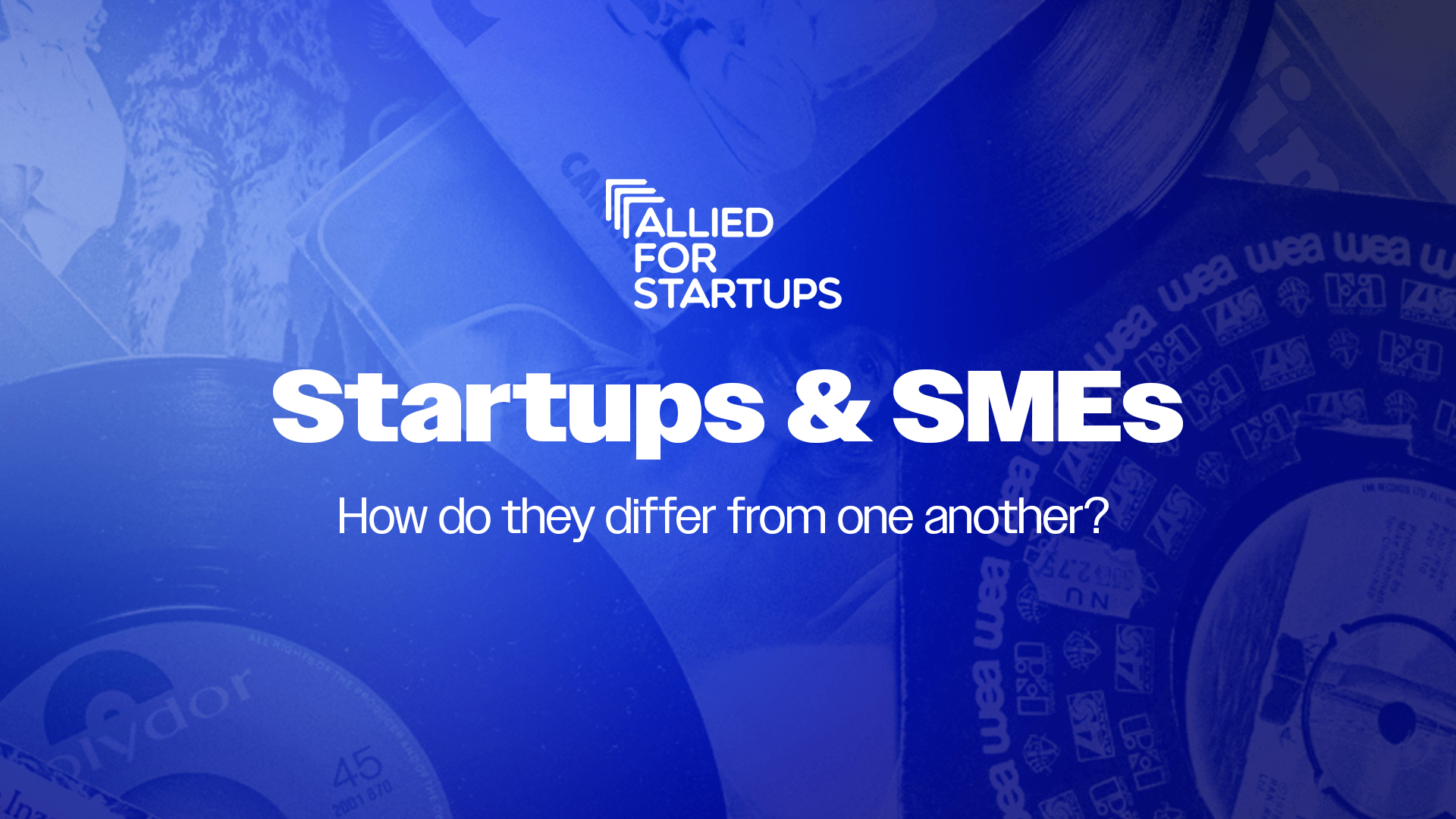Startups and SMEs are two different economic and social actors with different needs, capabilities and challenges – but they are, more often than not, placed in the same basket by policy makers. In hopes of bringing some much needed context to these evolving debates, we have laid out how they differ with a specific musical example to illustrate our point.
1. Scalability & growth trajectory
Startups aim to scale quickly through a business model that is highly growable, while SMEs have linear business models. In practical terms, scalability refers to the growth of revenues that is significantly higher than costs (for instance developing a very successful music streaming app once that is used by thousands of users). Linear business development refers to growth of revenues that keep a similar proportion with cost growth (for example opening up a record shop).
Startups often prioritise market share over profitability in the early stages as their main objective is to scale quickly. SMEs generally focus on sustainable growth rather than rapid expansion and prioritise profitability and operational efficiency. A music streaming app, for instance, has developed its streaming services with the aim to cater to a global audience very fast, so their aim is to acquire global market share before focusing on making profits. The record shop, in contrast, does not aim for aggressive global growth but instead wishes to achieve sustainable growth within its local market.

2. Innovation vs. stability
Startups are all about innovation and disruption. They often introduce new products, services, and business models to address unserved needs or solve existing problems in creative and novel ways, often aiming to revolutionise industries or markets or build new markets with innovative products or services.
The music app revolutionises the music market for listeners and artists alike. For listeners, it provides flexible and convenient access to a comprehensive library of music content and a personalised listening experience by leveraging algorithms. For artists, the app revolutionises the market by creating a global reach platform that connects them to fans and increases visibility and following. SMEs focus on stability and serving existing markets. While they may innovate within their niche, their primary goal is often to maintain and grow their customer base, operating within a certain market, rather than pursuing radical innovation and disrupting markets or forging new ones.
Our record shop primarily focuses on selling records on CD or vinyl within their region to local customers. To attract customers, the shop might innovate by hosting live music performances, album release events, or creating other curated experiences. The shop’s unique touch provides customers with a more personalised browsing experience while differentiating the record shop from its competitors. The record store, then, can build its customer base but has no need to revolutionise the music market through radical innovation.

3. Funding models
Startups typically rely on external funding, such as venture capital, angel investors, or crowdfunding to fuel their growth. They may prioritise raising capital to fund product development, marketing, and expansion efforts.
The music streaming app, for instance, can conduct multiple rounds of venture capital funding where it sells equity stakes in the company to external investors in exchange for capital. These rounds typically involve venture capital firms and are used to fund different stages of the app’s expansion. SMEs are more likely to rely on traditional sources of financing, such as bank loans, lines of credit, or bootstrapping. SMEs prioritise profitability and cash flow management to sustain and grow their operations. For the setup of a record shop, the entrepreneur(s) went to a bank to pitch their business idea and were granted a bank loan to cover the costs of starting the shop. Here, the funding acquired was meant to help establish and maintain the shop rather than to fund expansion activities.
4. Geographical reach
SMEs often focus their products or services in limited geographical jurisdiction and cater to a very specific public. Startups, on the other hand, are global from day one, and their objective is to expand across borders in a limited amount of time in order to offer their digital services or products indiscriminately to customers. The music streaming app, thus, had a global focus from the start, aiming to scale rapidly and gain market share to offer its music streaming services to listeners all over the world. Contrary to the music streaming app, the record shop has a local focus, targeting customers within the city or neighbourhood the shop is located in and cater their local customers, for example by offering music records of local artists.
As we have discussed, startups and SMEs have different needs, capabilities, and challenges. They both bring enormous social and economic advantages to societies and each has a role to play in building economic prosperity. However, each should be treated as separate entities by policymakers, taking care to tailor policies that benefit them individually, so that communities can reap the benefits of both types of these entrepreneurial ventures.
🔗 Download the article here.

